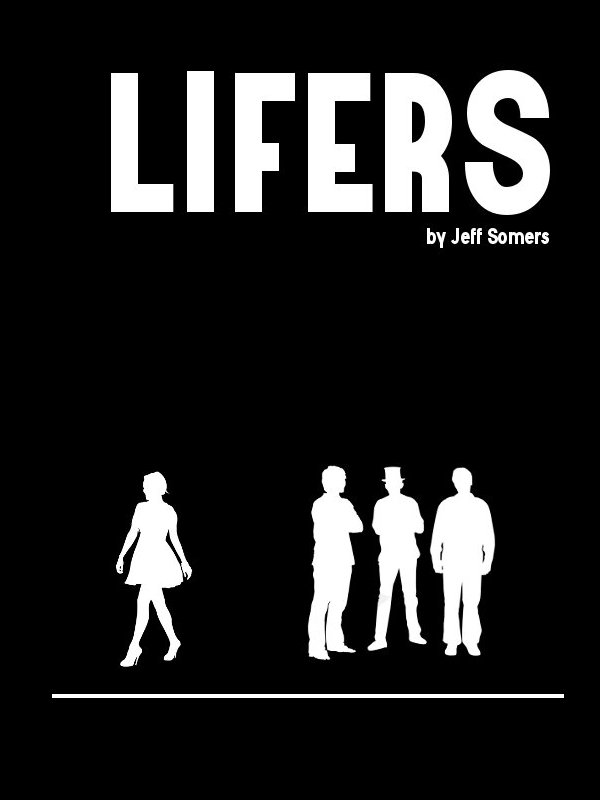People often ask me about the process of writing and selling a novel, so I thought it might be useful to walk through the stories behind my published novels (and maybe after that a few unpublished ones that involved withcraft, spycraft, and being banned from several government buildings). So let’s start at the beginning with my first published novel, Lifers.
I wrote the first draft of Lifers when I was twenty-six years old, which means we’re traveling back to the mid-1990s, a magical time when people had aol.com email addresses (mine was linknull@aol.com) and I was still writing everything on an old-fashioned manual typewriter. I was pretty broke, so I rarely changed out the ribbon on that sucker, either, so the original first draft of the novel is written in type so faint it’s almost invisible ink.
The inspiration for the book was simple: I was spending a lot of time drinking in bars, hanging out with friends, and hating my job. So I wrote about that. Any time you’re lacking in inspiration, you can use this one weird trick: Imagine your life, then imagine something strange happening in it. Meteor strike? Future You appearing in a ball of energy and warning you not to eat that sandwich? Doesn’t matter. I imagined my life but with me deciding to commit grand larceny, and a novel was born.
I wrote the book pretty fast; it’s not a very long novel, clocking in around 40,000 words, which people will tell you is too short to sell. I revised it once—exactly once, mainly to produce a clean typewritten copy since back then you didn’t have to submit electronically, and often couldn’t. I didn’t really change any of the story or even the actual words—I just typed out a clean version making minor fixes as I went. That was it for revision (until the publisher asked me to add a sex scene, that is), so the published novel is about 96% the same as the first draft.
I thought it captured something about that moment in my life even though I resisted every urge to have anything dramatic happen. No one gets the girl, no one gets arrested, and no one’s life changes in the story, on purpose. At the time that sort of non-dramatic story felt powerful to me—and to be honest remains one of my worst habits, opting for a non-event climax to a novel. So, impressed by myself, I started submitting it to agents and publishers.
I’ve told the story of how I sold Lifers elsewhere, so there’s no need to repeat it her verbatim. It was the end result of a lot of submissions, though, which is the important bit. I worked my ass off mailing that manuscript out to the world, and two years after finishing it I sold it, and two after that it published. And I got some polite reviews and low sales and that was that, really, until 2011 when I re-released it as an eBook.
So what are our takeaways here? One, selling a novel takes a lot of grunt work, not even counting the actual writing. Two, selling a novel might not change your life in any way. And three, I need to get out that old manual typewriter and start working on it again. That thing is a monster.

